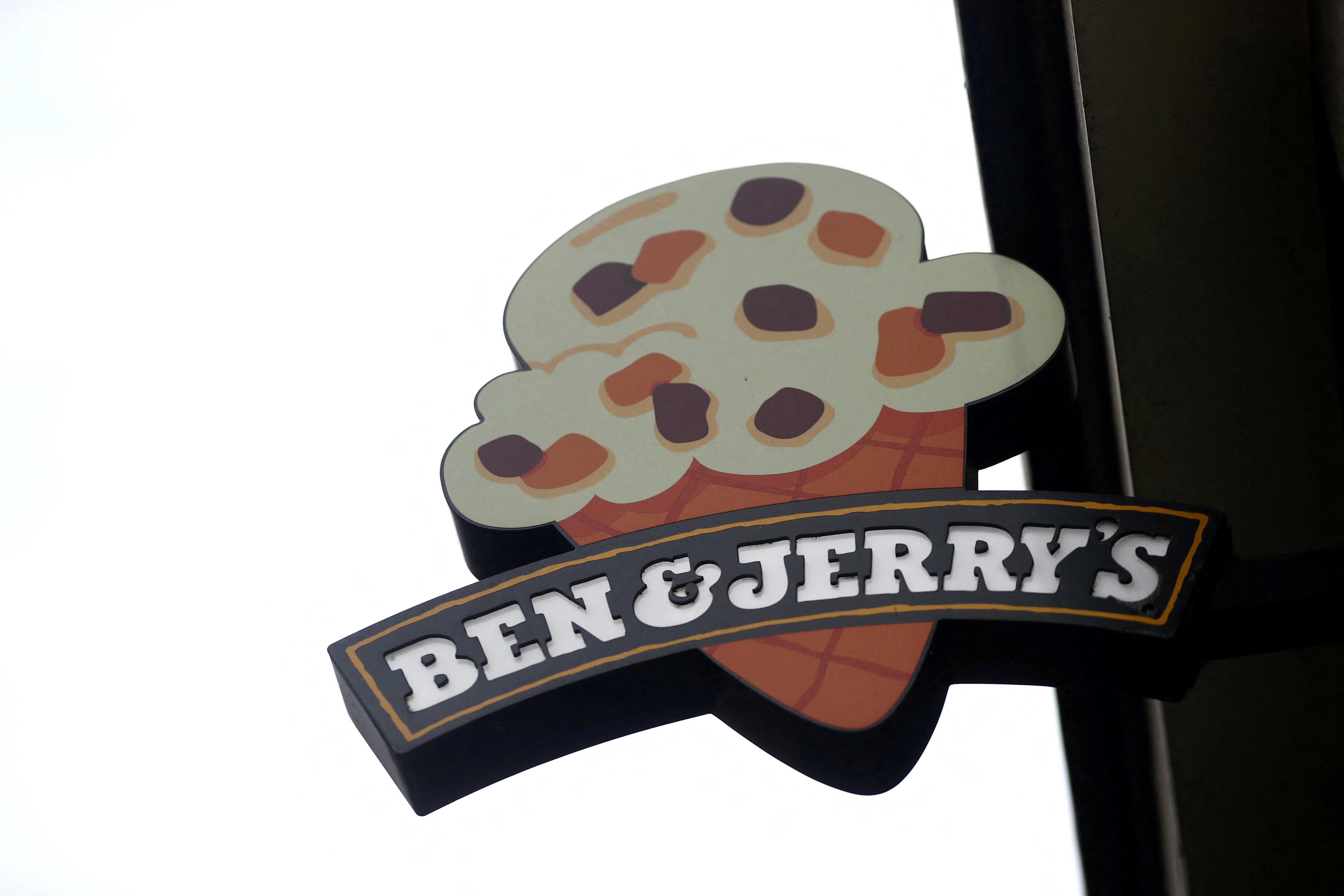Ben & Jerry’s sues Unilever claiming it was ‘silenced’ over views on Palestine
Lawsuit claims consumer goods giant tried to silence statements on ceasefire and block donations to activist groups
Ice cream maker Ben & Jerry’s sued its parent company Unilever in federal court, alleging the consumer packaged goods giant sought to “silence” efforts to speak out on human rights issues surrounding the Israel-Hamas war.
The suit, filed in Manhattan federal court on Wednesday, alleges Unilever violated merger and settlement agreements with Ben & Jerry’s and sought the “unilateral erosion” of the ice cream company’s well-known social justice values through “repeated overreaches.”
“Our heart goes out to all victims of the tragic events in the Middle East,” Unilever said in a statement to Bloomberg Law. “We reject the claims made by B&J’s social mission board, and we will defend our case very strongly.”
The dispute dates back to 2021 when Ben & Jerry’s decided to stop selling its products in the occupied West Bank, where Israel is widely considered to be violating international law.
The decision prompted controversy both in Israel and beyond, with some Unilever shareholders selling off bonds in protest. Investors in Unilever also sued.
The following year, Unilever sought to sell Ben & Jerry’s Israel business to a partner in the region under tweaked branding, a move which the ice cream maker sued to block, arguing it had been done without its consent. Unilever and Ben & Jerry’s settled in late 2022.

Under the terms of the settlement, Ben & Jerry’s said in its suit this week, Unilever affirmed its commitment to “respecting” the ice cream company’s independent board and its “authority over Ben & Jerry’s Social Mission and Brand Integrity.” It’s an arrangement Ben & Jerry’s said is also enshrined in the companies’ merger agreement from the year 2000.
When Hamas invaded Israel last October and war broke out, the relationship between the two companies broke down, according to the suit.
On four occasions, Unilever blocked attempts to speak out, per the complaint.
In 2023, the company allegedly threatened to dismantle the Ben & Jerry’s board and sue individual board members if they issued a statement calling for “peace” and a “ceasefire,” with senior executives Peter ter Kulve and Jeff Eglash allegedly attempting to “intimidate Ben & Jerry’s personnel with professional reprisals.”
The company also reportedly shot down statements supporting the right of campus protesters to speak out about the war in Gaza, as well as allegedly nixing planned calls in 2024 for halting arms sales to Israel and a statement calling for safe passage of Palestinian refugees.
The suit alleges that Unilever opposed the refugee statement, citing bad timing due to a recent Iranian attack on Israel, and “concerns about the continued perception of antisemitism.”
In addition to keeping statements from going public, Unilever also allegedly sought to block portions of $5m Ben & Jerry’s said it was entitled to direct towards human rights organizations under the terms of their 2022 settlement over the West Bank issues.
The suit claims Unilever objected to giving funds to Jewish Voice for Peace, a left-leaning advocacy group that has been critical of Israel, and the San Francisco chapter of the Council on American-Islamic Relations, citing the need for neutrality. The complaint notes that Unilever has chosen sides in other conflicts, such as publicly condemning Russia’s invasion of Ukraine, and has allegedly donated to an Israeli organization that works with the government to provide emergency medical services, including to those impacted by the Israel-Hamas war.
Unilever is seeking to spin off or sell Ben & Jerry’s by the end of next year.
Despite a growing trend of corporations speaking out about social issues, public stances about the Israel-Palestine conflict remain highly fraught in the corporate world.
Numerous U.S. states have laws making it illegal for state agencies to work with companies that have called for boycotting, divestment, or sanctions against illegal.
The American Civil Liberties Union argues such laws are “designed to discriminate against disfavored political expression.”
Join our commenting forum
Join thought-provoking conversations, follow other Independent readers and see their replies
Comments
Bookmark popover
Removed from bookmarks